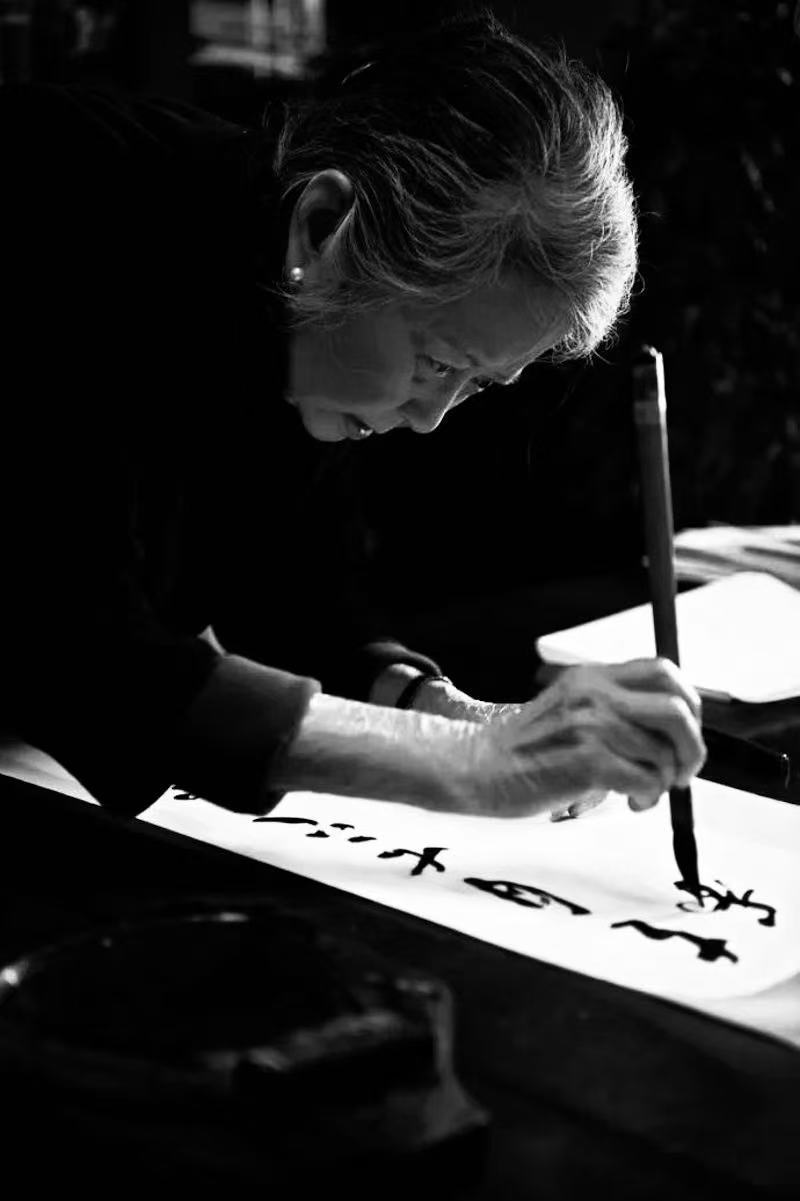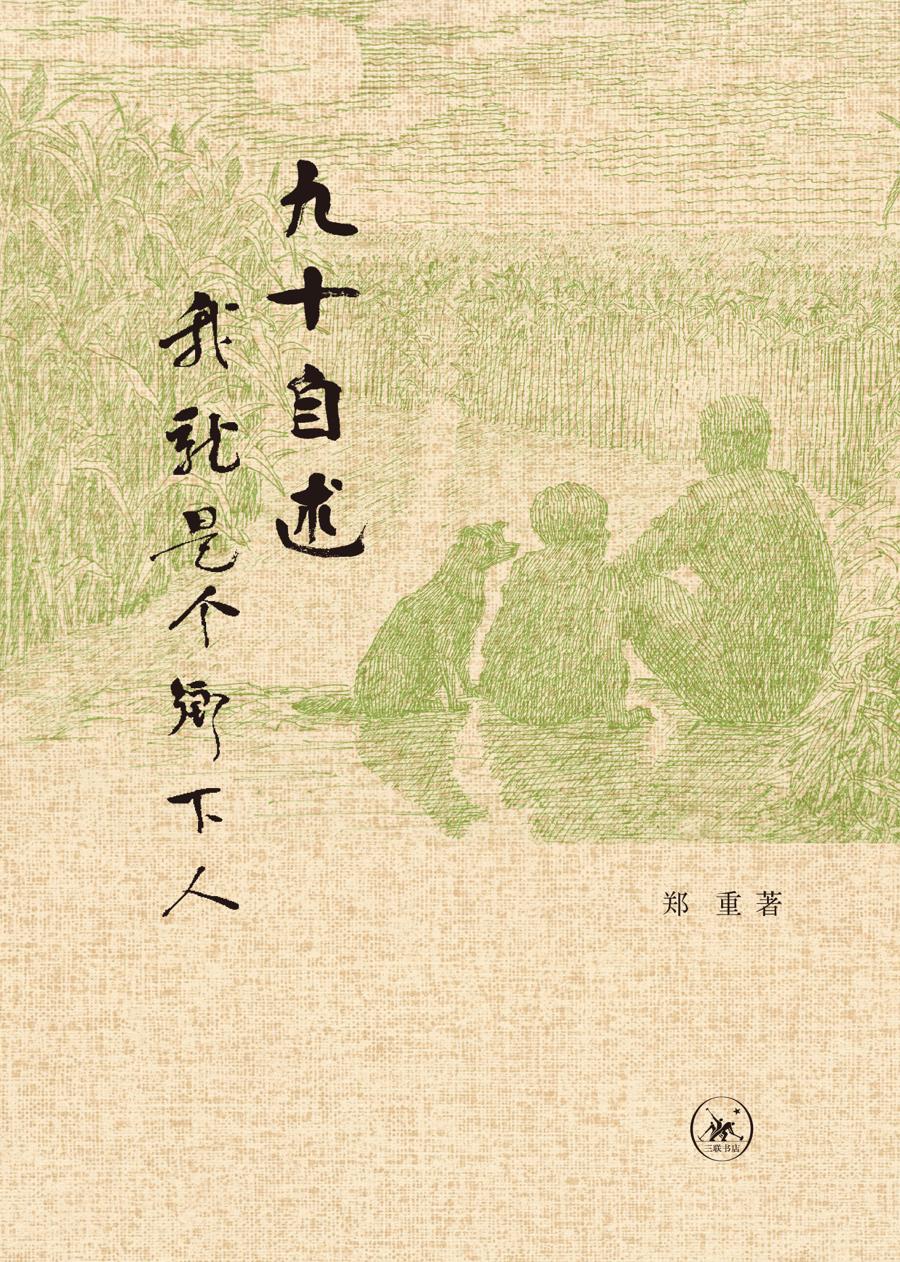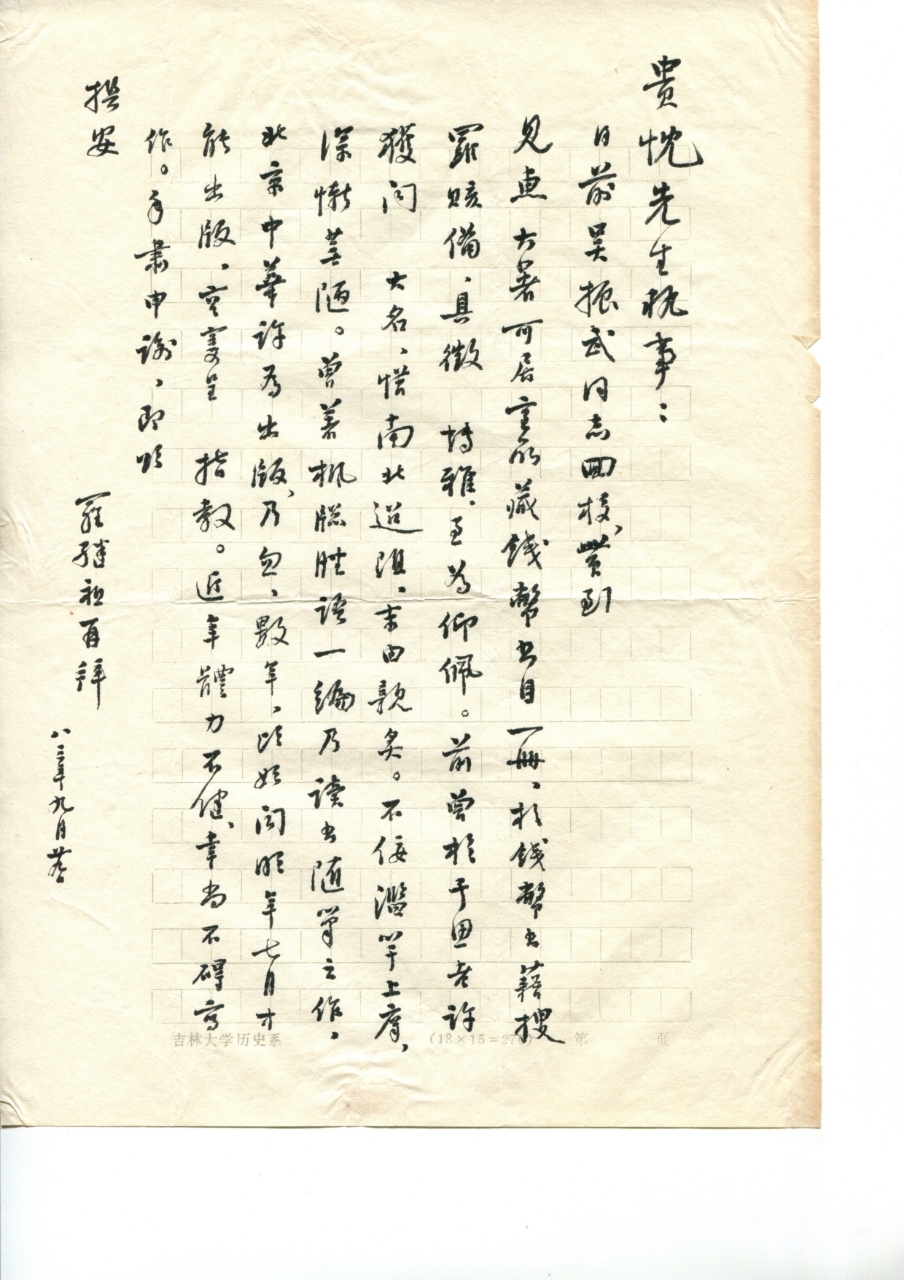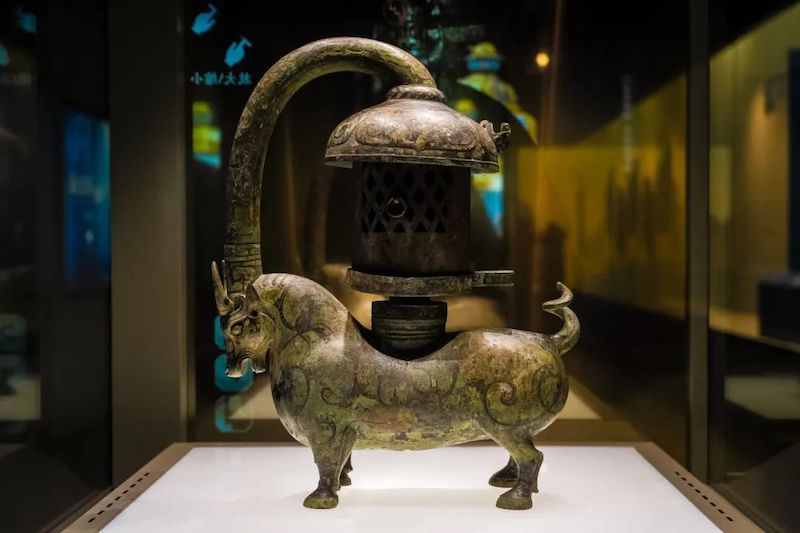
Zhang Chonghe (1914-2015) was once known as "the last talented woman of the Republic of China". After the 1950s, she taught calligraphy and Kunqu opera overseas and promoted traditional Chinese culture. Her famous couplet "A confidant is very cold, and a song is faint in this life" is a portrayal of her life over a hundred years.
This year marks the tenth anniversary of Zhang Chonghe's death. Songyinli Art Space on Wukang Road in Shanghai recently held a special exhibition called "Chonghe's Daily Lessons", presenting her daily calligraphy lessons that remained the same for decades, including calligraphy copies from when she was nearly a hundred years old. "Very Cold but Still a Confidant" is the first time it has been exhibited to the public.
Zhang Chonghe is the youngest of the famous "Four Sisters of Hefei" (Zhang Yuanhe, Zhang Yunhe, Zhang Zhaohe, Zhang Chonghe) in modern Chinese history. These four sisters are legends among the cultural figures of the Republic of China. They are talented and intelligent. They are talented women, the new intellectual women of the old times, and are also known as the "last ladies of the Republic of China". They have left their own influence in the fields of literature, Kunqu opera, education, etc. The famous "Broken Chapter" by the poet Bian Zhilin was written for her.

Zhang Chonghe
The four Zhang sisters are descendants of Zhang Shusheng, a famous general of the Huai Army in the late Qing Dynasty. Among them, Zhang Yuanhe married Kunqu opera artist Gu Chuanjie, Zhang Yunhe married linguist Zhou Youguang, and Zhang Zhaohe followed novelist Shen Congwen. Zhang Chonghe is the youngest sister and married American sinologist Fu Hanshi in 1947.

From left: Zhang Chonghe, Zhang Zhaohe, Zhang Yunhe, Zhang Yuanhe

Fu Hansi and Zhang Chonghe
When she was young, Zhang Chonghe spent every day in her grandmother's old house, immersed in poetry, calligraphy, and painting, meditating and being quiet and restrained. Kunqu opera and calligraphy were her lifelong confidants. In 1934, she enrolled in the Chinese Department of Peking University. At the age of 24, she compiled a book "Qu Ren Hong Zhua" for herself, collecting impromptu calligraphy and paintings by famous Kunqu opera masters and scholars. The year after she married Fu Hanshi, Zhang Chonghe moved to the United States, and later taught calligraphy at Yale University, passing on the Kunqu opera, and silently worked all her life to promote Chinese traditional culture. Zhang Chonghe regarded writing as a lifelong task, and she still insisted on copying in her later years, and she was still copying "The Epitaph of Lady Dong" at the age of 99.

Mr. Chang Chong-ho at the Chinese American Humanities Association
June 18, 2025 is the tenth anniversary of Zhang Chonghe's death. Songyinli on Wukang Road in Shanghai continued the "Come to Wukang Road to See Zhang Chonghe" exhibition three years ago and launched the "Chonghe Daily Lessons" special exhibition, using Zhang Chonghe's calligraphy works to commemorate this artist who devoted his life to calligraphy and Kunqu opera inheritance. Pan Dun, the person in charge of Songyinli, told The Paper, "Zhang Chonghe came to Wukang Road twice in the 1990s to visit her brother's friend, Mr. Ba Jin. At that time, she lived on Wukang Road, so 'Come to Wukang Road to See Zhang Chonghe' has also become the theme of our series of exhibitions."

"Chonghe Daily Lesson" exhibition site
The Paper learned that this "Chonghe Daily Lessons" special exhibition brings together more than 20 pieces of Zhang Chonghe's daily calligraphy, covering official, regular, running and cursive scripts. The calm brushwork and clear breath show her daily calligraphy lessons for decades, reflecting her profound artistic accomplishment and traditional skills. There are not only famous inscriptions and calligraphy that Zhang Chonghe studied and copied for decades, but also many pieces of Kunqu Opera Gongche notations that she copied by hand, showing her deep feelings and attainments for Kunqu Opera art.

At the exhibition, Zhang Chonghe copied Yan Lugong's Self-written Letter of Appointment
Entering the exhibition hall, the most eye-catching thing is Zhang Chonghe's imitation of Yan Lugong's Self-written Announcement Letter, which is written in large characters, dignified, simple, vigorous and powerful, and was written in 1979. Opposite is a "small-character" version of the "Announcement Letter", which was copied in 1976. "Many of Zhang Chonghe's works are not dated, but her imitations will be dated and indicate the number of times she copied. Sometimes, she will also write down her thoughts or record the news of the day." Pan Dun said.
Walking further in, visitors can see the copy of Lanting Preface by Zhang Chonghe in the 1980s. At that time, she and her husband Fu Hanshi lived in Germany for half a year, and copied Lanting many times, especially the version by Chu Suiliang. She also wrote "Returning Home", which was later presented to Mr. Huang Shang. Next to the "Lanting Preface" are two vertical scrolls in running script, both of which are based on her own poems. One is "Embankment", which reads "I don't know why I have come to the end of the world, wandering around with falling flowers. I have walked all the way along the green embankment, with spring as my attire and dreams of home." The other is "Linjiangxian·Peach Blossom Fish", which reads "Remember the road along Wuling Creek, where the spring breeze has no limit to the roots and buds. The world decorates him with freedom, and he is willing to be a butterfly at the bottom of the waves, and go to the end of the world at will. Describe the traces of spring without a place to stay, and pity the fleeting body the most. Try to use the flying umbrella to tie up the withered flowers, the light gauze is all tears, and the mist falls on the flat sand. "

Zhang Conghe's own poems written in running script at the exhibition

Zhang Chonghe's copy of Zhang Heinu's epitaph
How much calligraphy did Zhang Chonghe copy? Zhang Chonghe wrote a letter to her brother Zhang Zhonghe in the 1960s:
I am really happy to receive your letter. I haven't written to you for a long time... I am impatient for everything except writing. I have kept all the calligraphy I practiced this year, and burned or thrown away all the calligraphy I wrote in previous years. I calculated the total account today and report it to you.
Ji Lin, seal script: Several pieces of Qin Quan Taishan Langya Stone Inscriptions
Li: Shimen Song twice, Liqi Tablet twice, Huashan Tablet once, Cao Quan Tablet once, Yiheng Tablet once, Zhang Qian Tablet once
Regular script: Monk Meng's Stele three times, Duobao Pagoda once, Yan Zhenqing's personal announcement ten times, Six Dynasties tombstones several times, Jiucheng Palace once
Lines: Yu Shinan's Lanting Preface 130 times, Su Shi's Huangzhou Cold Food Post 40 times, Yan Zheng's Seat 7 times, Sacrifice to My Nephew
Cursive: Calligraphy Collection once, Zhang Xu's Four Ancient Poems four times, Huaisu's Autobiography once, Gao Xian's Thousand Characters Essay four times
"These are the number of calligraphy she copied in a year. Although it is not necessarily that she copied calligraphy all the time, you can imagine the effort she put in." Pan Dun said, "I have seen many of her works. Among them, she loved to copy the "Book of Calligraphy" the most. A book of "Book of Calligraphy" mounted in the exhibition is her copy of the whole book, more than 3,000 words, written in April 2006, when she was 93 years old. It is hard to imagine that she can still write like this at the age of 93."

Zhang Chonghe's copy of "The Epitaph of Lady Dong"
In addition to calligraphy, Zhang Chonghe's favorite is Kunqu Opera. She has devoted her life to promoting Kunqu Opera and has done a lot of work overseas. It is reported that Zhang Chonghe once donated her handwritten Kunqu Opera score to the Chinese Kunqu Opera Museum in Suzhou, and also donated her own set of Kunqu Opera costumes. In the exhibition, visitors can also see Zhang Chonghe's Gongche score, including "The Palace of Eternal Life", "The Peony Pavilion" and "The Golden Lotus". Also on display are the opera character paintings of the late famous painter Gao Made, each word and each painting reflects each other.

Exhibition View

Zhang Chonghe's handwritten gongche notation "Tanci·Changshengdian 38th Act"

The Peony Pavilion by Gao Made
In addition to calligraphy and Kunqu opera, Zhang Chonghe also liked painting. The exhibition also presents her daily painting lessons. In the display cabinet, visitors can see more than 10 copies of Gong Xian's manuscripts, covering mountains, rocks and trees, and copied the inscriptions on Gong Xian's original manuscripts. A painting of "Strange Stones" on the exhibition wall was painted on Western painting paper, showing a different charm of brush and ink.

Zhang Chonghe imitated Gong Xian's teaching manuscript

Zhang Chonghe's "Strange Stones"
At the end of the exhibition, the couplet written by Zhang Chonghe is also on display to the public: "I am very indifferent but I still have a close friend. I spend my life in a vague song." It is written in official script, with a desolate and natural style, which can particularly reflect Zhang Chonghe's personality and art. Pan Dun said, "This was written by her for herself on her 70th birthday. Later, this couplet was collected by Mr. Dong Qiao from Hong Kong and has never been shown to the public before."

At the exhibition site, there was a famous couplet written by Zhang Conghe: "Even in the midst of indifference, there is still a close friend, and a faint song to spend this life."
The exhibition also presents related works by Dong Qiao, Bai Qianshen, Lin Xi, etc. They express their feelings with their writings and use different styles to respond to Zhang Chonghe's artistic spirit and character. Whether gentle, calm, or free and easy, the writings are all about deep remembrance and tribute to Chonghe. The calligraphy, painting, and music complement each other, together outlining Zhang Chonghe's daily routine for decades.
[The exhibition will be on display until July 30. You need to make an appointment on the "Songmeng Art" applet at least one day in advance to visit. ]


